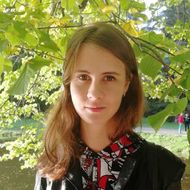- A
- A
- A
- ABC
- ABC
- ABC
- А
- А
- А
- А
- А
- HSE Campus in St. Petersburg
- Saint-Petersburg School of Social Sciences
- Department of Political Science and International Affairs
- The International Conference on Justice and Freedom took place in October 2020 in St. Petersburg
-
Departament
- About the Department
- Faculty and Staff
-
Annual Conference “The October Readings”
-
More About the Conference
-
Upcoming Conference
-
Archive
-
-
Academic Seminar
-
Upcoming seminars
-
Previous Seminars
-
198068 Saint Petersburg
Griboyedov channel embankment, 123, Room 324
t. +7 (812) 644-59-11, plus 61415
The Department was created on the basis of the Department of Politics, which was established in 2005. The main purpose of the department is to provide today’s students with professional training in the fields of political analysis and sociopolitical engineering, as well as in creating a special creative atmosphere that allows for the formation and development of a society of political experts who are capable of not only carrying out professional research, but also proposing and implementing solutions to relevant Russian and international problems.
 Terrorism and Political Contention. New Perspectives on North Africa and the Sahel Region
Terrorism and Political Contention. New Perspectives on North Africa and the Sahel Region
Atanasiu M., Besenyő J., Denisova T. S. et al.
Springer, 2024.
Коцур Г. В.
Вестник Пермского университета. Серия: Политология. 2024. Vol. 18. No. 1. P. 103-111.
Issaev L., Korotayev A., Besenyő J.
In bk.: Terrorism and Political Contention. New Perspectives on North Africa and the Sahel Region. Springer, 2024. P. 1-17.
OxonCourts Judicial Studies Graduate Colloquium. OxonCourts Judicial Studies Graduate Colloquium. University of Oxford, 2019
The International Conference on Justice and Freedom took place in October 2020 in St. Petersburg
Report
On October 15-17, 2020, the 9th International Scientific Conference of the “October Readings” cycle took place in St. Petersburg. This year the Conference was called “The Problem of Justice and Freedom in the Modern Polarized World”.
The conference was organized by the Interregional Humanitarian and Political Science Center STRATEGY, the Department of Political Science and International Relations of the National Research University Higher School of Economics - St. Petersburg and the Russian Association of Political Science (RPAS).
The relationship between freedom and justice continues to persist as one of the important debates not only in political philosophy and theory, but also in more applied empirical research. In today's not only politicized, but also deeply polarized world, these debates become the cornerstone in determining approaches to the widest range of problems of the modern society. Can we achieve justice without compromising freedom? Can we achieve freedom without sacrificing justice? Obviously, in order to resolve these issues, it is necessary to clarify which dimensions of freedom and justice are being discussed, in which philosophical and political context this problem is posed. Based on this, specialists from a wide variety of academic schools and industries were invited to participate in the 9th October Readings to ensure that our conference is interdisciplinary and pluralism of scientific approaches.
As it is stated in the announcement of the conference, the following problematic blocks were proposed as the main substantive areas for discussions at the conference:
1. Justice and freedom in the context of asymmetric globalization and new technologies of the XXI century;
2. Formation of new political practices of freedom and justice;
3. The price of freedom: the social costs of political transformation;
4. Justice and freedom: political and philosophical understanding of phenomena;
5. Symbolic dimension of freedom;
6. Justice, freedom and modern nationalism;
7. The role of intellectuals and political leaders in promoting different models of justice and freedom;
8. Justice, freedom and new political populism;
9. Justice and freedom "on the other side of the “right” and “left””;
10. Fairness and freedom in measuring human rights.
11. How to maintain a balance between “freedom” and “justice” in the case of pandemic (COVID-19).
Note that the conference was prepared and held during the Covid-19 pandemic, which undoubtedly influenced the list of the participants. So, unlike in previous years, the October Readings - 2019 were held not in the classrooms of the Higher School of Economics - St. Petersburg, but in the conference hall of the “Sokos-Vasileostrovskaya” hotel. A significant part of the discussions took place in a "mixed" format: a number of participants, both from other countries, and from Russia, spoke at the Zoom seminar section, and all participants worked in the same room, naturally, observing the norms of social distancing and the use of masks.
At the opening of the conference on October 17, the participants were greeted by: A.Y. Sungurov, Professor of the Higher School of Economics - St. Petersburg and President of the Interregional Humanitarian and Political Science Center STRATEGY, Chairman of the Organizing Committee of the conference; Peer Teschendorf and S.V. Akopov, professor at the Higher School of Economics - St. Petersburg, Chairman of the conference program committee.
A plenary lecture on the topic “Liberalism in Russia: Yesterday, Today, Tomorrow” was made at the opening of the conference by Doctor of Philosophy, Head of the Sector of Philosophy of Russian History of the Institute of Philosophy of the Russian Academy of Sciences, A.A. Kara-Murza. On the same day, a master class for students and postgraduates on the topic “How to write a scientific article” was delivered by Doctor of Philosophy, Professor, Academic Director of the postgraduate school in political science of the EIU HSE O.Y. Malinova.
The first day of the conference was traditionally devoted to the Youth Forum, where students and graduates of bachelor's degree programs from St. Petersburg and Yekaterinburg made their reports.
The second day of the conference was opened with a master class on the topic “Philosophical (intellectual) travellogy: a new methodology of political and cultural research”, which was conducted by Professor of the Higher School of Economics - Moscow O.A. Zhukov and A.A. Kara-Murza. Then, a round table of the Research Committee on Human Rights of the Russian Association of Political Science was held on the topic “Freedom and Justice in the Period of Growth of Their Restrictions: the Fight for Equality and Survival” (moderated by A.Y. Sungurov). The main report using Zoom technology was delivered from Moscow by the executive director of the Institute of Human Rights V.M. Gefter, then by RUDN University associate Professors M.G. Ivanova and V.N. Ivanov and after, also using Zoom technology, by O.V. Zakharova from Irkutsk. The round table was also attended by the head of the Amnesty International branch in Russia N.A. Zvyagina (Moscow), Head Department of Human Rights at the Humanitarian University in Yekaterinburg S.I. Glushkova, social scientist and journalist M. Turovets (Volgograd) and social scientist V.V. Kostyushev (St. Petersburg).
After a lunch, two panel sessions were held about the conference, which were conducted by Associate Professor of St. Petersburg State University A.O. Zinoviev and Professor of Tver State University S.V. Rassadin. The second day of the conference ended with a speech by Professor Raymond Taras from Tulane University (New Orleans, USA) via Zoom on the topic "Democracy in Danger: Theory of Democratic Backsliding: The Cases of Turkey, Hungary and Venezuela)"
The third day opened with a very interesting speech by E.N. Roshchin (RANEPA) on the topic: "About the university, freedom and polarization", in which he applied some concepts of republicanism for a better understanding of the concept of academic freedom. Then the third panel was held on the topic of the conference, led by S.V. Akopov. It was held in English, one quarter “in real life” (a joint presentation by Ian Fergusson (HSE University - Moscow) and S.V. Akopov) and three quarters - on-line (speeches by Ursula Froese (Viadrina University, Germany), Alfred Gerstl (Palatsky University, Czech Republic) and Mikhail Maslovsky (Sociological Institute RAS / HSE-SPb).
The conference ended with a joint German-Russian-Ukrainian round table on the topic “Gaps and coincidences. Research of Narratives in the Public Consciousness of Germany, Russia and Ukraine” following the results of the five-day seminar of the same name. The collection of materials of this project was kindly presented to the conference participants by the Institute of Law and Public Policy (Moscow). The round table was attended by six experts - two from Germany, Russia and Ukraine, each of whom spoke about his participation in writing one of the chapters of the collective monograph and his impressions of the project.
Continuing the already established tradition, in the end of the conference, the topic of the next (10th) October Readings, which will take place in St. Petersburg on October 20-22, 2021, was announced as “Policy Transfer, Diffusion and Translation: Bridging Rationalist-Constructivist Divides”. The Chairman of the October Readings-2021 Program Committee is Oleg Vladimirovich Korneev, Associate Professor, Academic Director of the Master’s Program “Comparative Politics of Eurasia”, National Research University Higher School of Economics (St. Petersburg).
October Readings Preview (DOCX, 16 Kb)
-
https://elearning.hse.ru/en/mooc/
Massive Open Online Courses
-
https://www.hse.ru/en/visual/
HSE Site for the Visually Impaired
-
http://5top100.com/
Russian Academic Excellence Project 5-100
- © HSE University 1993–2024 Contacts Copyright Privacy Policy Site Map
- Edit

